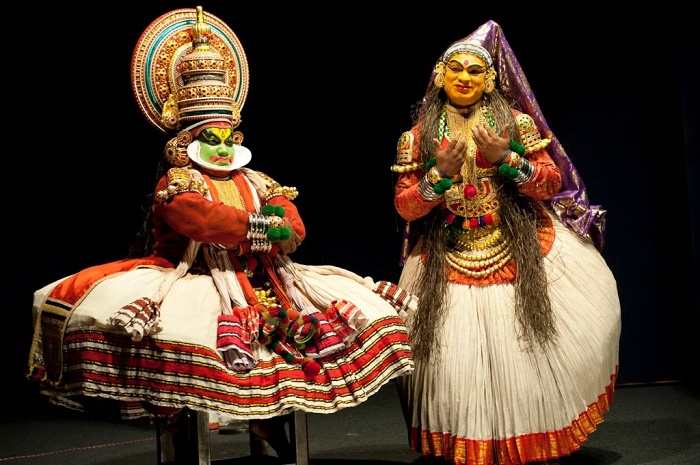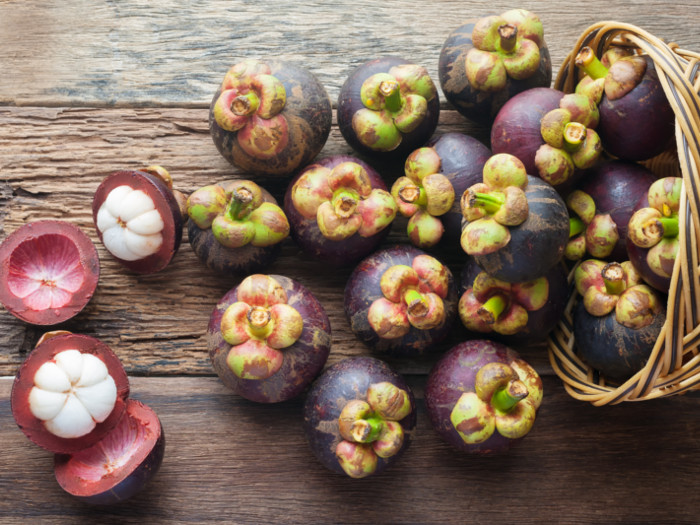Spoiler Alert: Plot Summary
The God of Small Things is a tale of twins. We follow Estha (Esthappen) and Rahel through their present, past, and future, in India and abroad, delving into tragedy and reliving their childhood. They are, in many ways, more a we than a he and a she. They seem to know each other's innermost thoughts and feel each other's pain. The story weaves us back and forth from past to present, and we learn the circumstances that split Estha and Rahel apart, the eventual death of their mother, and how the twins are eventually reunited.
The rest of the family plays an integral role in the plot, from the twins' great-aunt Baby Kochamma, to their grandparents Mammachi and Pappachi, to their uncle Chacko and cousin Sophie Mol. The story is full of death and full of life, packed with flavor and aching with pain and desire. Ultimately, what the twins find and seek is not so much resolution as reincarnation.
Spoiler Over: Continue Here
People whose names begin with the letter D
Dear readers, I wanted to like this book. In fact, I wanted to LOVE this book, since two of my dearest friends (both with names that start with D) are big fans. Alas, I did not love this book. I won't go so far as to say that I hated it, but I will say that it wasn't a very pleasurable reading experience to me. In much the same way that Great Expectations is full of sadness, this book is full of trials and challenges for its characters. But, where GE succeeds for me is that it gives the reader levity and joy within that desolation. This is not to say that only happy books are good ones - that, certainly, is not true. But in this case, I wanted not only a little more joy, but also to genuinely care about what happened to the characters. Perhaps because it took place mostly in retrospectives, I didn't feel that I really got to know the characters, so when things happened to them, I didn't really care very much. In any case, I always encourage readers to make their own decisions about books, and of a trio of readers, this book still has a 67% recommendation rating, thanks to D2. So make up your own mind.
Capital letters When the Mood seems to Strike
One of the things I really liked about this book was that it reminded me very much of the lyrical quality to several other books I've read by Indian authors (Home and the World, Haroun and the Sea of Stories). Obviously I don't want to lump all authors of a country together, but I do find that there are some similarities and kinships I really enjoy. One of these is a propensity to use capital letters in meaningful ways. Here is an example:
In those early amorphous years when memory had only just begun, when life was full of Beginnings and no Ends, and Everything was Forever, Esthappen and Rahel thought of themselves together as Me, and separately, individually, as We or Us.Church domes painted blue like the sky.
During a funeral, Rahel examines the church ceiling, and it is domed and painted like the sky, which reminded me very much of the church I grew up going to. I used to count the stars in the ceiling and imagine the sky beyond that sky, so I liked the idea of us having similar mental explorations continents apart.
Now tell me, are you jelly, or are you jam?
Another thing I really liked about this book was that the family owns a factory called 'Paradise Pickles and Preserves'. As I've mentioned in other posts (Please Look After Mom) the process of preserving and pickling makes me think fondly of my mom and my aunts and my great aunts. I loved this line in particular, as my mother and I have discussed the difference between jelly and jam at length:
They used to make pickles, squashes, jams, curry powders, and canned pineapples. And banana jam (illegally) after the FPO (Food Products Organization) banned it because according to their specifications it was neither jam nor jelly. Too thin for jelly and too thick for jam. An ambiguous, unclassifiable consistency, they said.Pappachi
Pappachi reminded me in a very negative way of Things Fall Apart and some other classic wife-beaters in literature. That said, here are a few lines about him that I enjoyed:
In the evenings, when he knew visitors were expected, he would sit on the verandah and sew buttons that weren't missing onto his shirts, to create the impression that Mammachi neglected him. haghaghaghahgagh.
His light-brown eyes were polite yet maleficent, as though he was making an effort to be civil to the photographer while plotting to murder his wife. This sentence is so great.Feeling vomity
I loved this exchange between Estha and Ammu, his mother, at the movies:
"Now WHAT?"It reminded me of many a conversation I have had with a middle schooler who was feeling vomity, and/or who might have already felt vomity and, say, thrown up in the bathroom sink.
"Feeling vomity," Estha said.
"Just feeling or d'you want to?"
"Don't know."
Books this book reminded me of:
- Please Look After Mom (house as factory, pickling, preserving)
- The Home and the World (zamindars, revolution, relationship between castes)
- Haroun and the Sea of Stories (Capital Letters but also lyrical storytelling)
- Hotel New Hampshire (incest, siblings intertwined)
- Things Fall Apart (treatment of wife beating as banal)
- Ulysses (made me feel vomity, tbqh)
- The House of Spirits (muteness becoming its own character)
- The old house on the hill wore its steep, gabled roof pulled over its ears like a low hat.
- A hot river and a pickle factory.
- This was the trouble with families. Like invidious doctors, they knew just where it hurt.
New words
veshya - a Hindu of an upper caste traditionally assigned to commercial and agricultural occupations
estivation - ZOOLOGY: prolonged torpor or dormancy of an animal during a hot or dry period; BOTANY: the arrangement of petals and sepals in a flower bud before it opens
estivation - ZOOLOGY: prolonged torpor or dormancy of an animal during a hot or dry period; BOTANY: the arrangement of petals and sepals in a flower bud before it opens
mangosteen - The purple mangosteen, known simply as mangosteen, is a tropical evergreen tree believed to have originated in the Sunda Islands of the Malay archipelago and the Moluccas of Indonesia
mundu - in Kerala and other parts of southern India: a large piece of cloth worn wrapped around the waist and (when worn by men) frequently having the lower back edge pulled up between the legs and tucked into the waistband


lambent - (of light or fire) glowing, gleaming, or flickering with a soft radiance
kathakali - Kathakali (Malayalam: കഥകളി) is one of the major forms of classical Indian dance. It is a "story play" genre of art, but one distinguished by the elaborately colorful make-up, costumes and facemasks that the traditionally male actor-dancers wear.
I will leave you with this line, which was a reference to the kathakali, but I think speaks quite clearly to a broader truth:
I will leave you with this line, which was a reference to the kathakali, but I think speaks quite clearly to a broader truth:
The Great Stories are the ones you have heard and want to hear again. The ones you can enter anywhere and inhabit comfortably. They don't deceive you with thrills and trick endings. They don't surprise you with the unforeseen. They are familiar as the house you live in. Or the smell of your lover's skin. You know how they end, yet you listen as though you don't. In the way that although you know that one day you will die, you live as though you won't. In the Great Stories you know who lives, who dies, who finds love, who doesn't. And yet you want to know again.I'm off in search of more Great Stories, and to explore the beauty of southern California! Onwards to Maya Angelou.

No comments:
Post a Comment